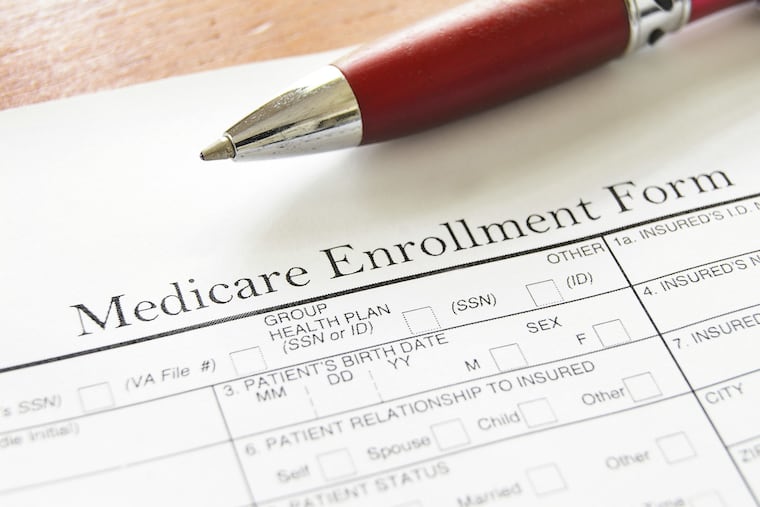Medicare open enrollment starts Oct. 15. Here’s what to know for 2022.
Medicare’s fall enrollment period runs through Dec. 7 and is a time for people to review their coverage. But researchers say few take the opportunity and may wind up with unanticipated costs.

Medicare’s annual fall enrollment period, which runs Oct. 15 through Dec. 7, is a time for seniors to review their coverage and make changes for the coming year.
Although there aren’t any major updates to Medicare for 2022, the COVID-19 pandemic has been a reminder that it is critically important to have an insurance plan that meets your needs.
For many, the pandemic has brought on lifestyle changes, such as retiring or moving to be closer to family, since travel has been discouraged to limit the spread of the virus. Others may simply be more keenly aware of how much health care costs and concerned about being caught without the right plan, should they get sick.
“It’s so important people take their time to do their research,” said Chris Orestis, president of Retirement Genius, a company that advises seniors on retirement and Medicare enrollment. “They get the opportunity to make the adjustments when their needs have changed.”
» READ MORE: Medicare open enrollment 2022 questions answered
Yet a majority of people with Medicare do not review their coverage during open enrollment, according to a new analysis of 2019 Medicare data by the Kaiser Family Foundation.
About 70% of Medicare members did not compare plans, potentially exposing them to unanticipated out-of-pocket costs. People more likely to be affected by plan changes — such as older adults, those with disabilities and those in poor health — were even less likely to compare plans, according to the report.
Similarly, about 70% of people with a stand-alone prescription drug plan and 80% of people with drug coverage through a Medicare Advantage plan did not compare drug costs.
Even if their health status hasn’t changed, everyone should check that needed prescription medications are covered, as changes to drug formularies (lists of drugs covered by a plan) are among the most common changes that seniors may not realize until they go to pick up a prescription and find that their out-of-pocket cost has increased.
People who have retired and recently joined Medicare should take the opportunity to evaluate whether their initial selection is working well for them. And people planning to continue working beyond age 65 should compare the cost of their employer’s health plan and Medicare to decide which option is best, Orestis said.
» READ MORE: The coronavirus is exposing America’s eye-popping health-care charges: One dad’s 10-day hospital stay cost $97,000
Medicare members may also want to consider how their plan covers services related to COVID-19:
COVID-19 vaccines are free. Regardless of whether you have original Medicare or a Medicare Advantage plan from a private insurer, there is no cost to getting the vaccine. If you receive a bill, it is a mistake — contact Medicare or your Advantage plan insurer.
COVID-19 testing is free. There is no cost to get tested for COVID-19 if you have original Medicare and see a provider who accepts Medicare, or if you have Medicare Advantage and see an in-network provider. Medicare Advantage members should contact their plan to confirm coverage for tests from out-of-network providers.
Telehealth coverage has expanded. In response to the pandemic, Medicare expanded coverage for telehealth appointments, including the option of audio-only telehealth visits. Standard cost-sharing applies for original Medicare plans, and people with a Medicare Advantage plan should contact their insurer for details about cost-sharing. This coverage will remain in place for the duration of the public health emergency.
» READ MORE: COVID-19 vaccine is free, yet some are getting bills. Doctors worry this is slowing immunization.